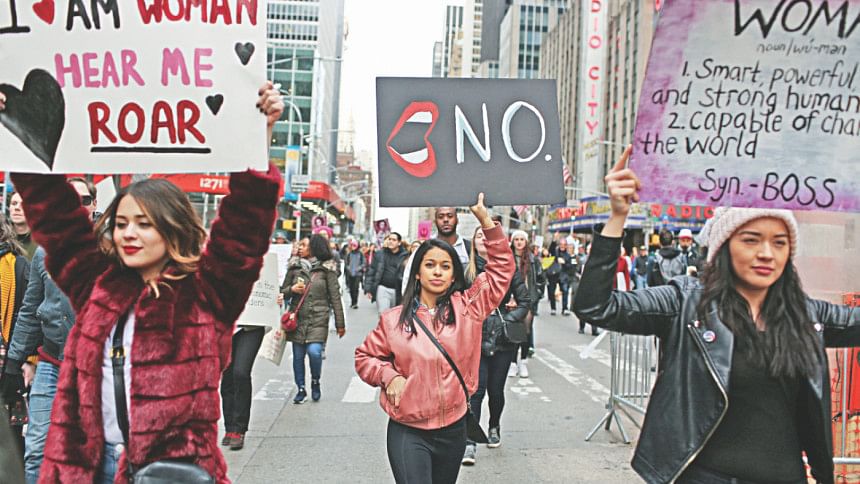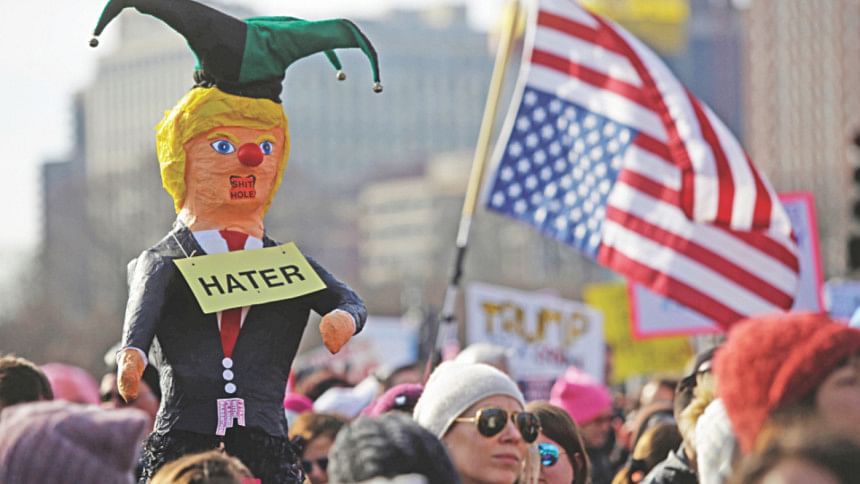Little hope of breakthrough

US lawmakers were set to launch a last-ditch bid yesterday to end a budget impasse before hundreds of thousands of federal workers are forced to start the work week at home with no pay.
The impact of the shutdown that began at midnight Friday has been largely limited so far, closing sites like New York's Statue of Liberty, but the effect will be acute if the stalemate runs into Monday.
Republicans and Democrats have traded bitter recriminations over who is to blame for the failure to pass a stop-gap funding measure by a January 20 deadline, a year to the day since Donald Trump took office as US president.

Highlighting the deep political polarisation, crowds estimated to number in the hundreds of thousands took to the streets of major US cities Saturday to march against the president and his policies.
Top Senate Republican Mitch McConnell on Saturday set a key vote for a funding measure for 1:00 am (0600 GMT) Monday, with both houses of Congress set to reconvene Sunday.
"I assure you we will have the vote at 1:00 am on Monday, unless there is a desire to have it sooner," he said in a statement.
At the heart of the dispute is the thorny issue of undocumented immigration.
Democrats have accused Republicans of poisoning chances of a deal and pandering to Trump's populist base by refusing to fund a program that protects 700,000 "Dreamers" -- undocumented immigrants who arrived as children -- from deportation.
Trump, in return, has said Democrats are "far more concerned with Illegal Immigrants than they are with our great Military or Safety at our dangerous Southern Border."
The shutdown's effects meanwhile are set to intensify.
Essential federal services and military activity are continuing, but even active duty troops will not be paid until a deal is reached to reopen the US government.
There have been four government shutdowns since 1990. In the last one in 2013, more than 800,000 government workers were put on temporary leave.
Congress reconvened for a rare Saturday session, where leaders of both sides were meant to hammer out their differences to prevent the shutdown from stretching into Monday. Instead, they traded accusations of responsibility for the shutdown.
Schumer said trying to negotiate with Trump "was like negotiating with Jell-O."
"It's impossible to negotiate with a constantly moving target," he said.
Meanwhile, McConnell said Schumer "took the extraordinary step" of preventing the legislation from passing and thus "plunging the country into this totally avoidable mess."
Republicans have a tenuous one-seat majority in the Senate, and on Friday needed to lure some Democrats to their side to get a 60 vote supermajority to bring the motion forward. They fell ten votes short.
As US lawmakers wrangled over government funding, protesters turned out in cities including Los Angeles, New York and Washington to express their opposition to Trump, and their support for women's rights.
Protestors hoisted placards with messages including "Fight like a girl" and "A woman's place is in the White House" and "Elect a clown, expect a circus."

 For all latest news, follow The Daily Star's Google News channel.
For all latest news, follow The Daily Star's Google News channel. 



Comments